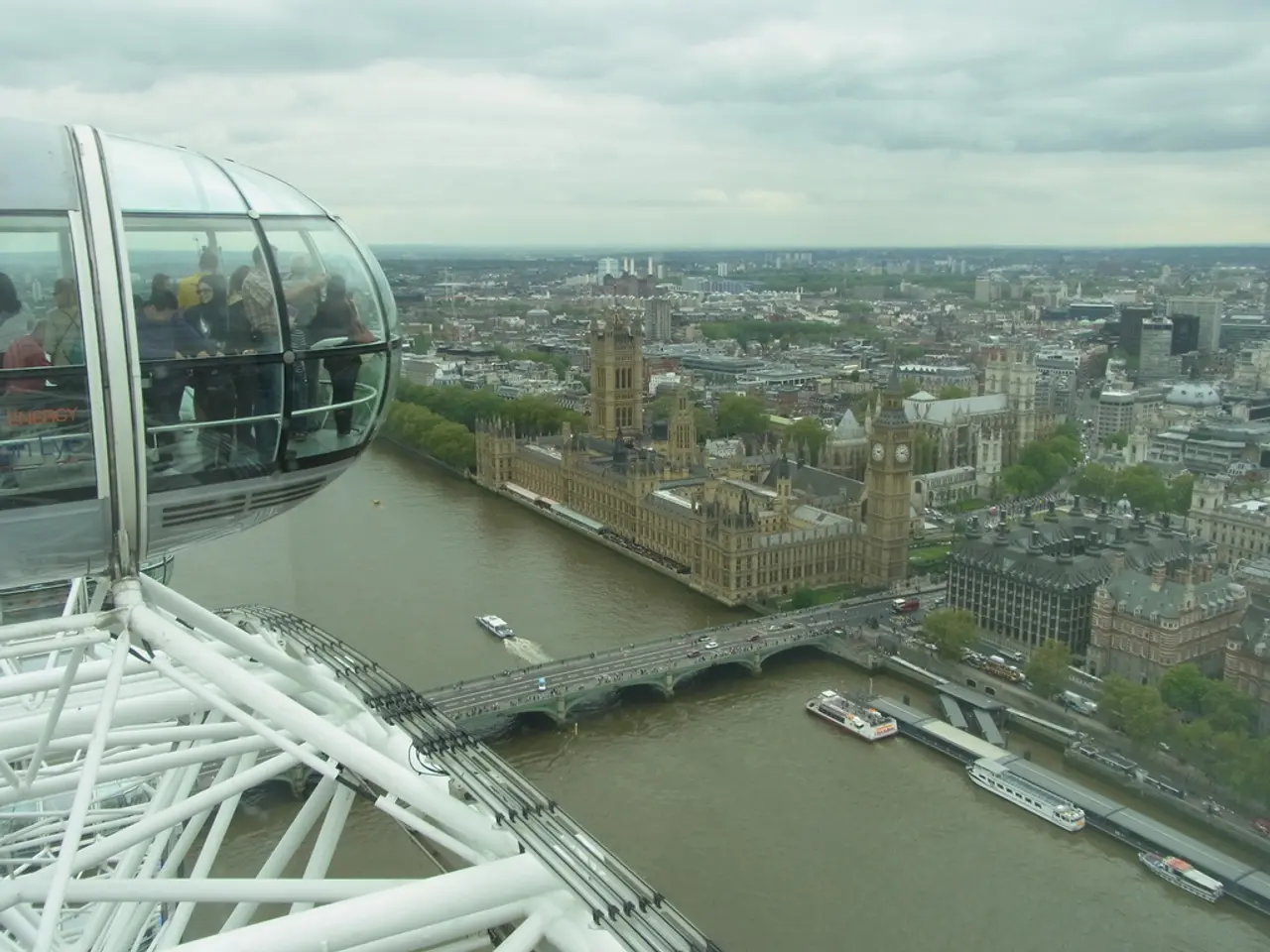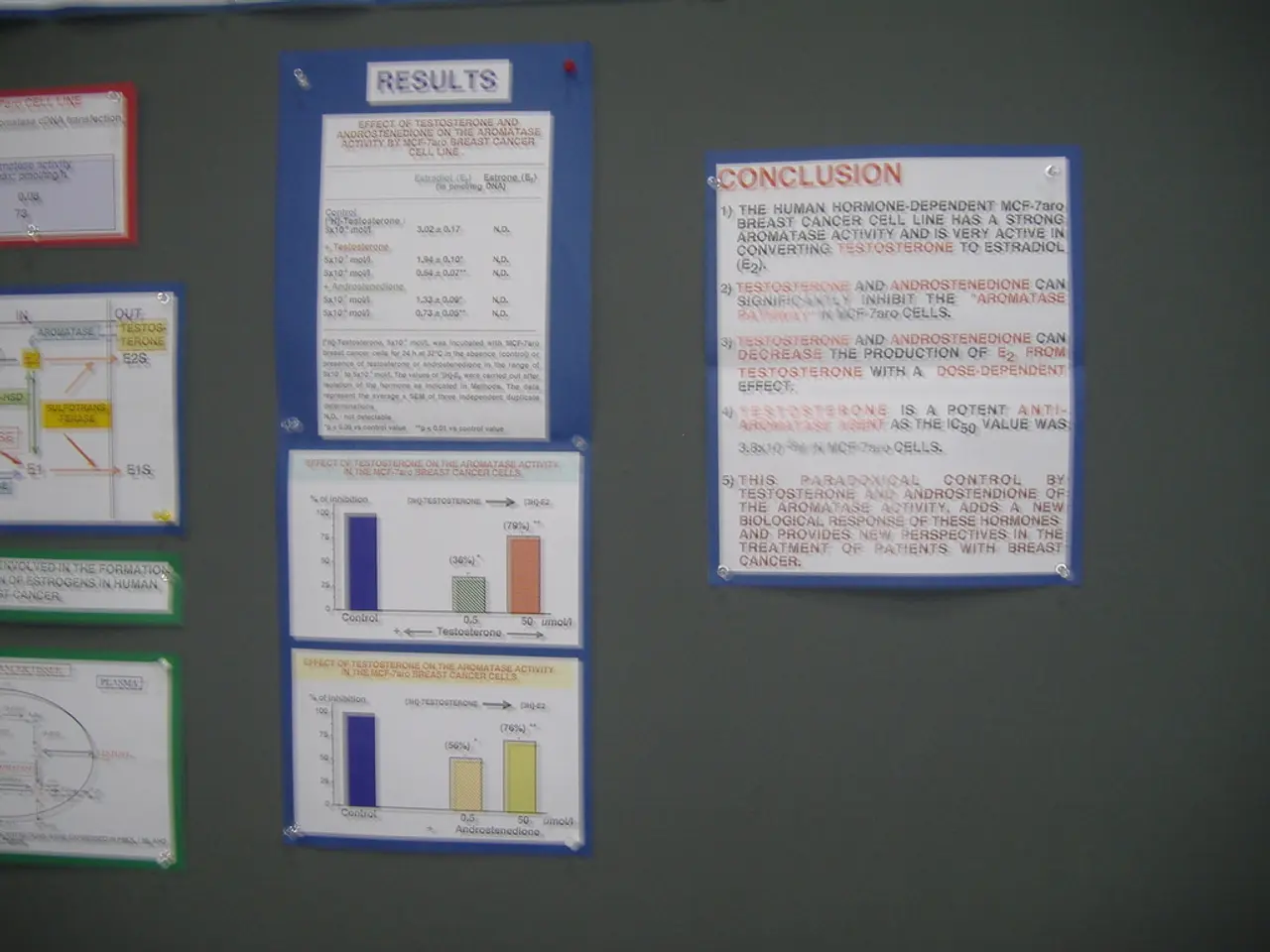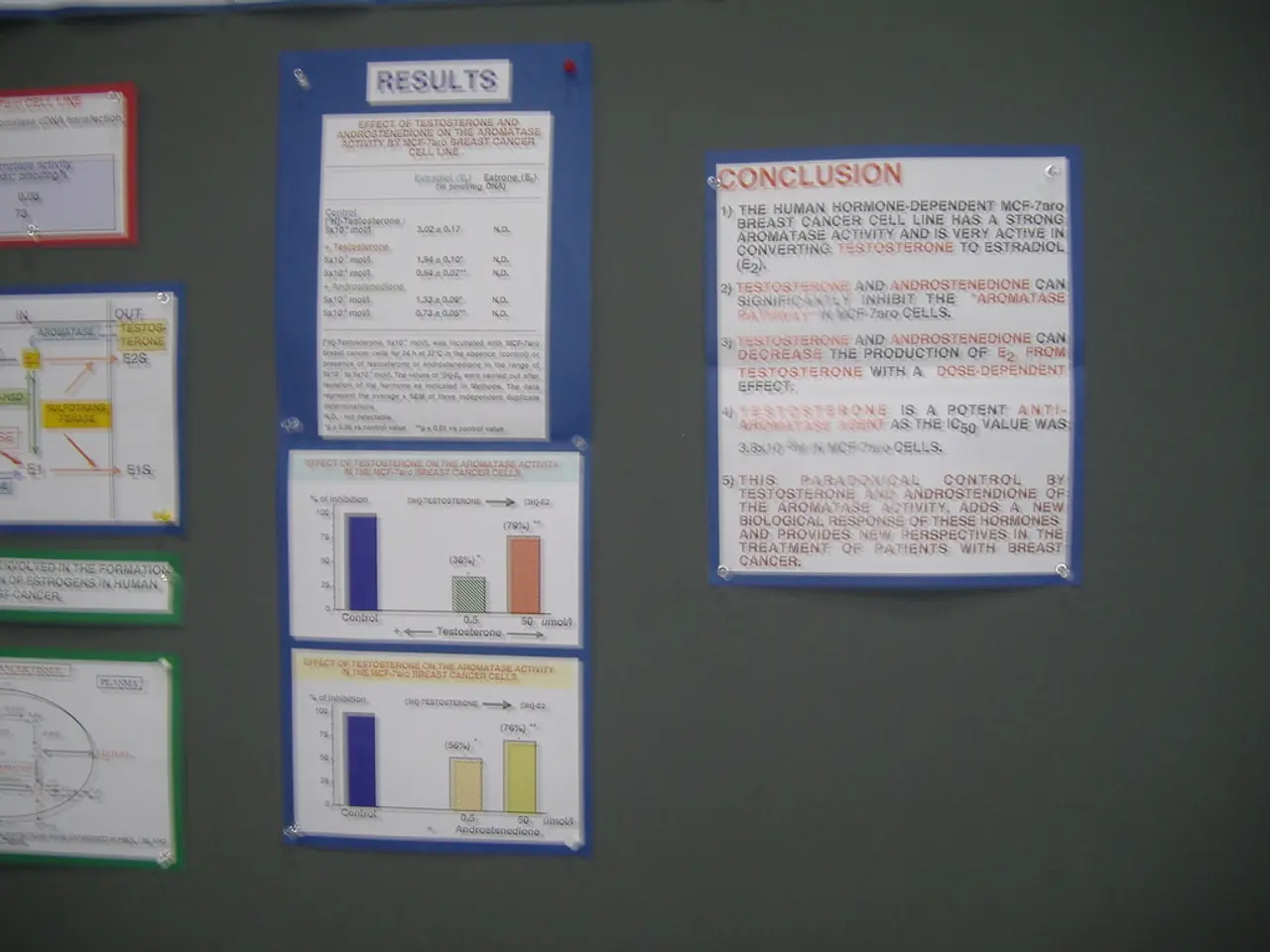Bank executive states that increasing taxes on banks, as suggested by Rachel Reeves, could negatively impact economic growth
In the ongoing debate about Britain's taxation policies, the 'Big Four' banking chiefs—including HSBC's Georges Elhedery, NatWest's Paul Thwaite, and Lloyds' Charlie Nunn—have voiced their concerns against a potential tax hike on banks. Their primary argument is that such a move could harm economic growth by discouraging investment and lending, which are essential for supporting business activity and jobs.
The UK's banking sector already carries a higher tax rate compared to its overseas counterparts. In 2024, the sector's total rate stood at 45.8 per cent, higher than Amsterdam (42 per cent), Frankfurt (38.6 per cent), and Dublin (28.8 per cent). This high tax burden could be further increased with the proposed surcharge on banks, which, when added to the corporation tax, would set the banks' rate at 30 per cent.
The banking leaders argue that increasing bank taxes could reduce the funds available for lending and investment, thereby slowing the overall economy. This concern aligns with the Bank of England's cautious monetary stance amid subdued economic conditions and the intention to stimulate growth by lowering interest rates.
The current fiscal challenges facing the UK, with a potential need for substantial tax rises or spending cuts to close budget gaps by 2029/30, further highlight the concerns raised by the banking chiefs. Government officials and economists acknowledge these fiscal challenges, implying that policies which could slow growth—such as higher taxes on key sectors like banking—could be counterproductive.
In a leaked memo, Deputy Prime Minister Angela Rayner recommended a series of revenue-raising measures to Rachel Reeves, potentially heightening the possibility of a tax hike on banks. However, the banking chiefs maintain that taxing banks more heavily could reduce the availability of credit to businesses and consumers, dampening investment and consumption, which are key drivers of economic growth.
Nunn, the CEO of Lloyds, declared that increasing taxes on lenders would not be consistent with helping boost the economy. HSBC's Elhedery warned against raising taxes on banks due to concerns about harming economic growth. Thwaite, the CEO of NatWest, argued that strong economies need strong banks, preferring to use the bank's capital for loans to boost growth.
As the first-half earnings season for UK lenders concludes, the Chancellor may face a £20bn shortfall in the Autumn after a series of government U-turns across welfare and winter fuel allowances and the costly £190bn Spending Review. With economists estimating this fiscal shortfall, the potential for a tax hike on banks becomes a contentious issue, with bank analysts from Bank of America warning about the possibility of bank taxes due to the worsening fiscal position in the UK.
In summary, the arguments against a tax hike on banks focus on the risk that it would limit banks’ capacity to lend and invest, thereby slowing economic expansion. Given the UK's current fiscal and economic challenges, government and financial leaders appear keen to avoid such a scenario.
- The banking leaders argue that a potential tax hike on banks could reduce the funds available for lending and investment, which could slow the overall economy, aligning with the Bank of England's cautious monetary stance amid subdued economic conditions.
- With economists estimating a £20bn fiscal shortfall in the Autumn and the potential for a tax hike on banks becoming a contentious issue, bank analysts from Bank of America warn about the possibility of bank taxes due to the worsening fiscal position in the UK.
- The UK's banking sector already carries a higher tax rate compared to its overseas counterparts, and further increasing the sector's tax burden could be counterproductive, as policies which could slow growth—such as higher taxes on key sectors like banking—could impede economic recovery.
- Government officials and economists acknowledge the fiscal challenges facing the UK, implying that they are aware of the potential consequences of implementing policies like higher taxes on key sectors like banking, which could negatively impact economic growth and stimulus efforts.




